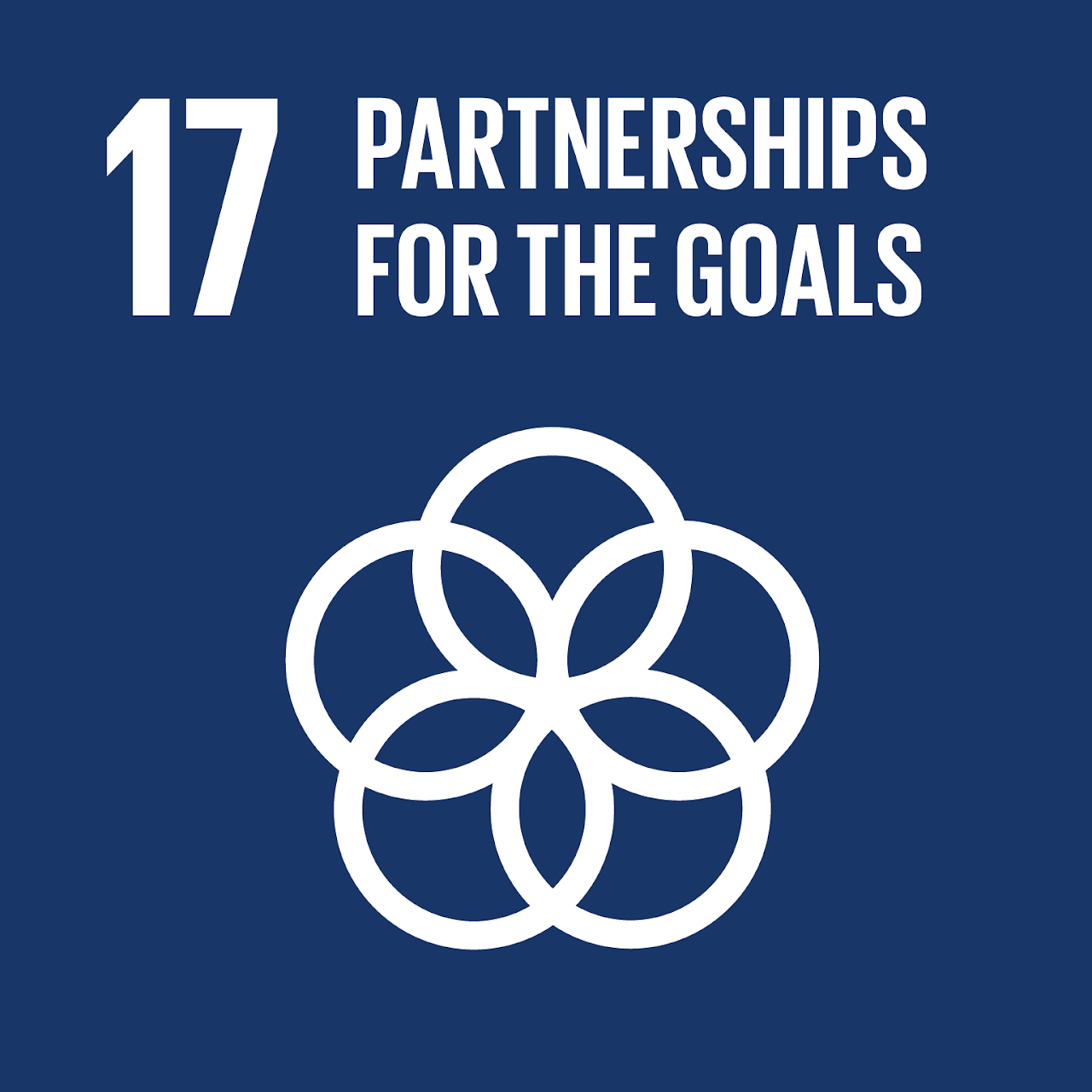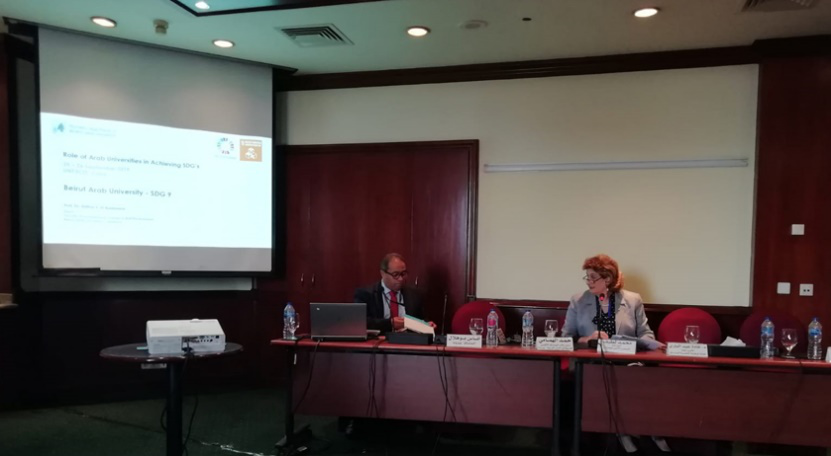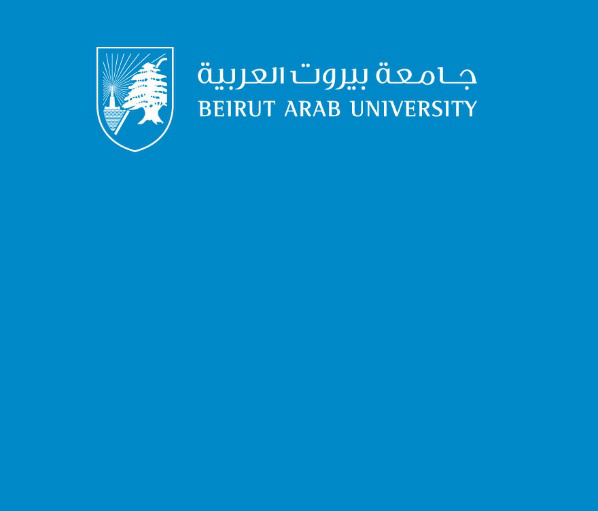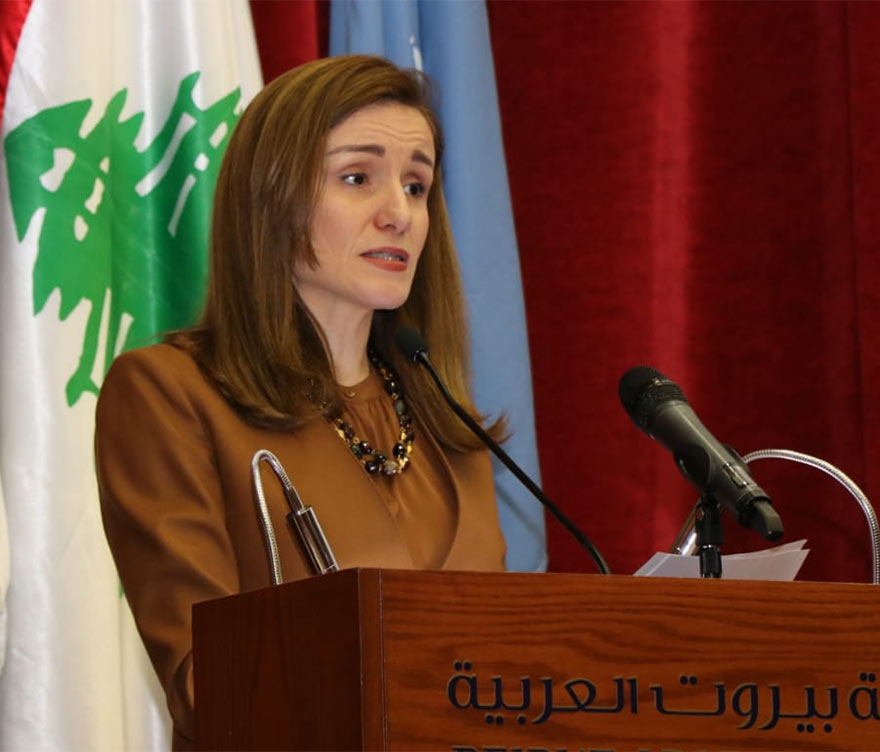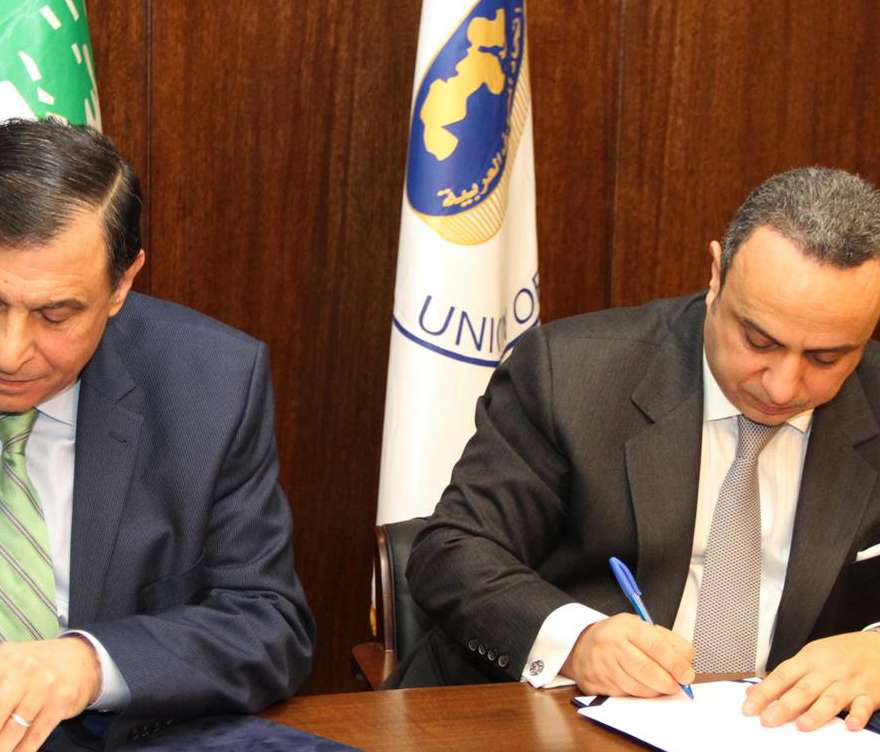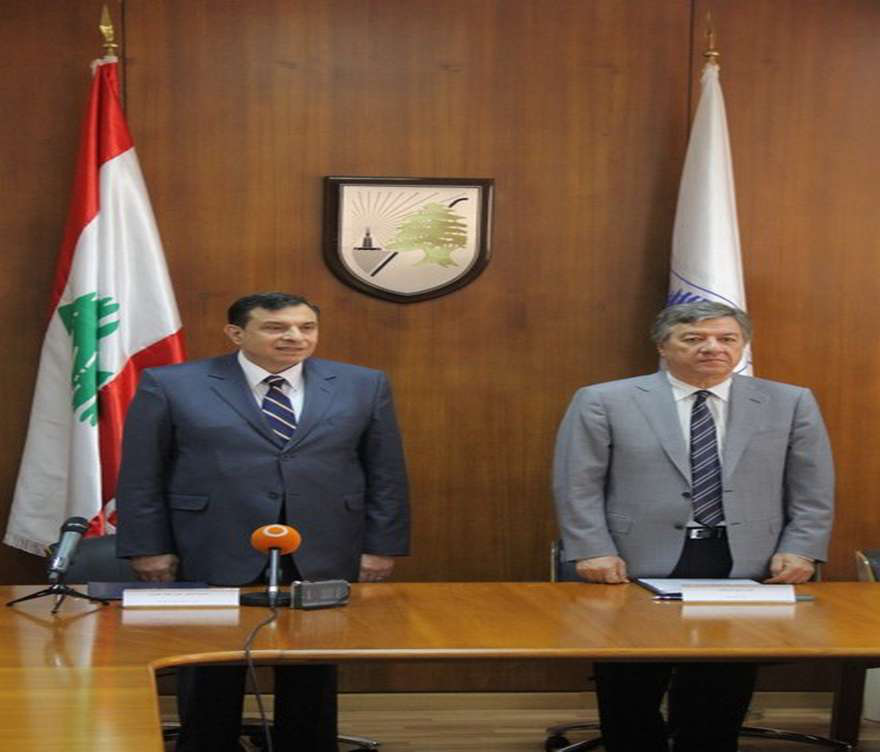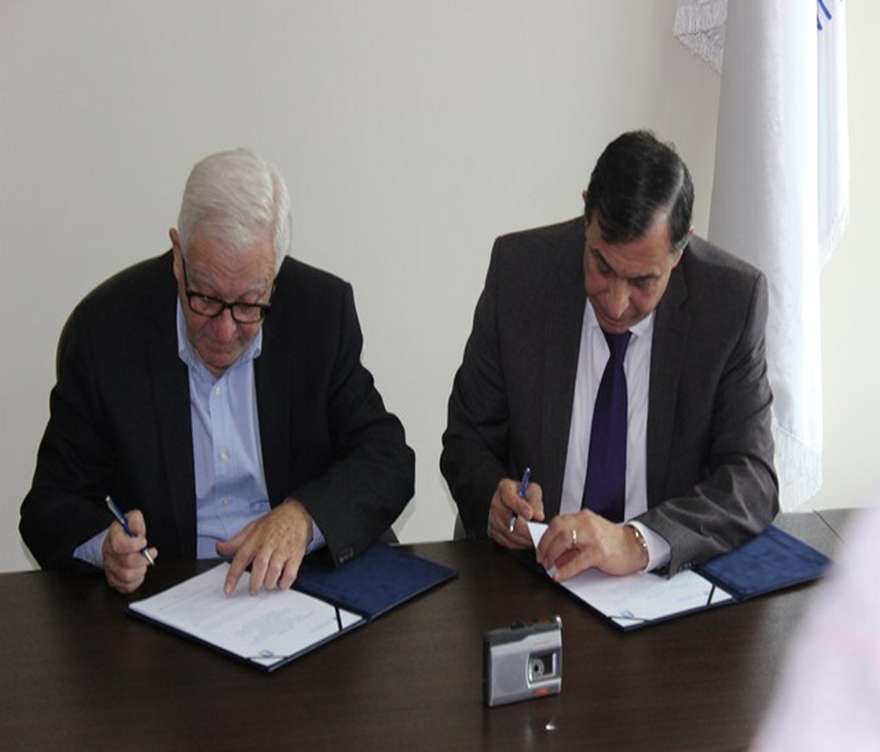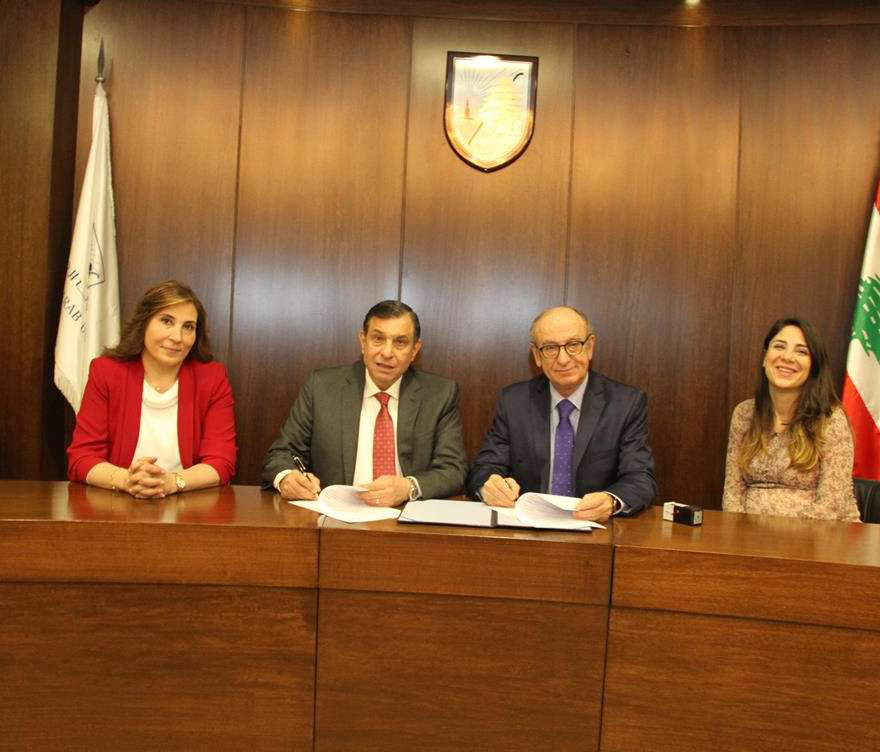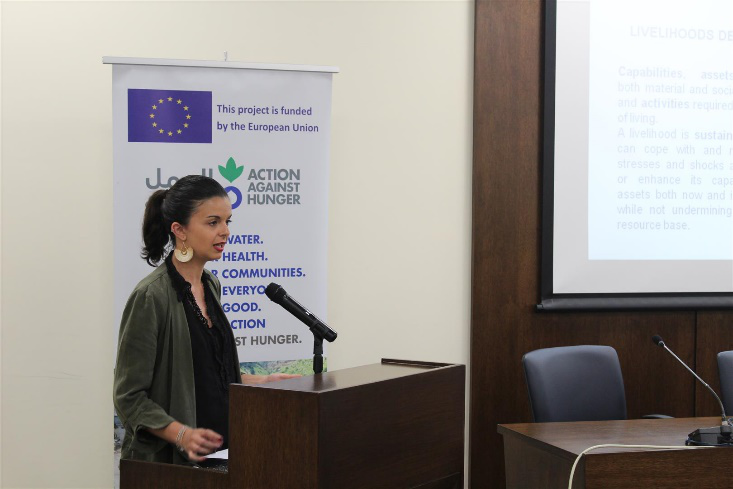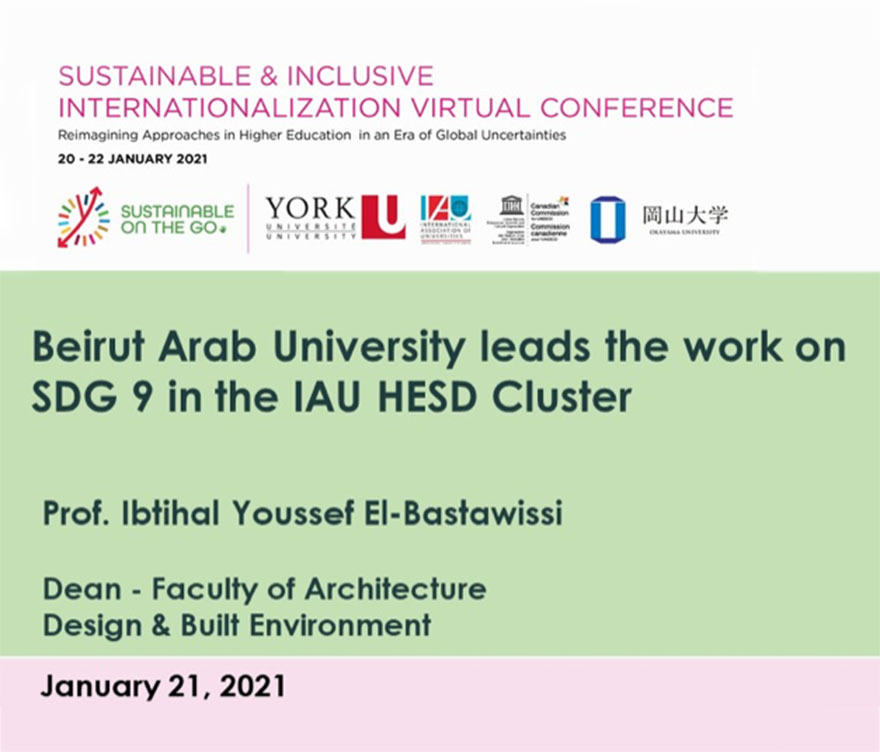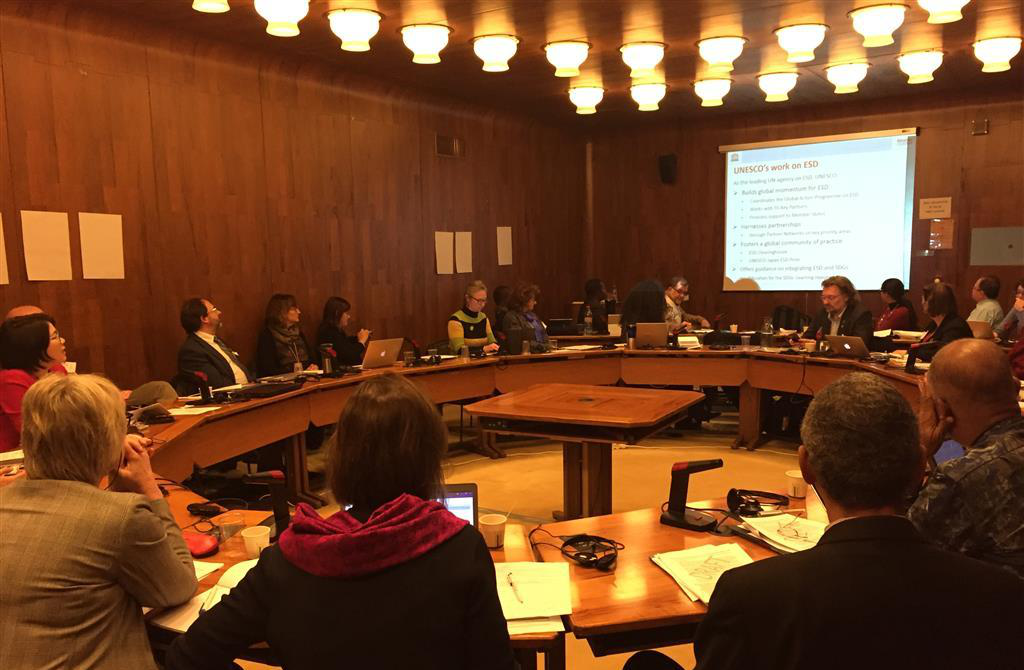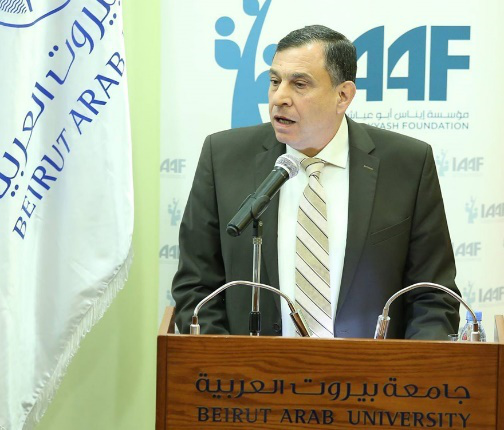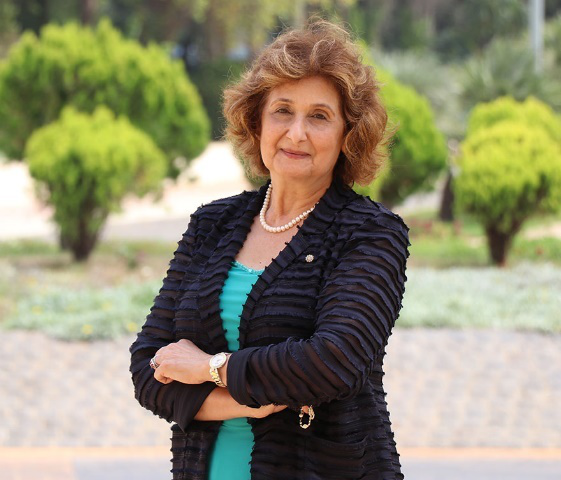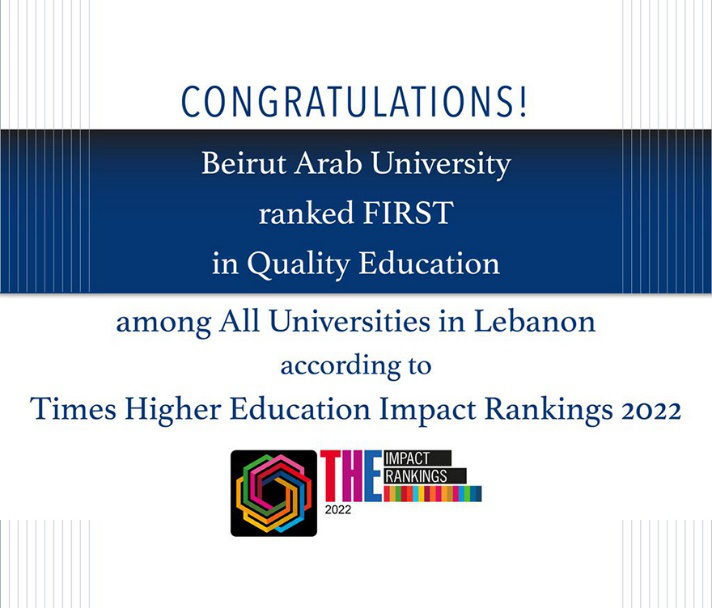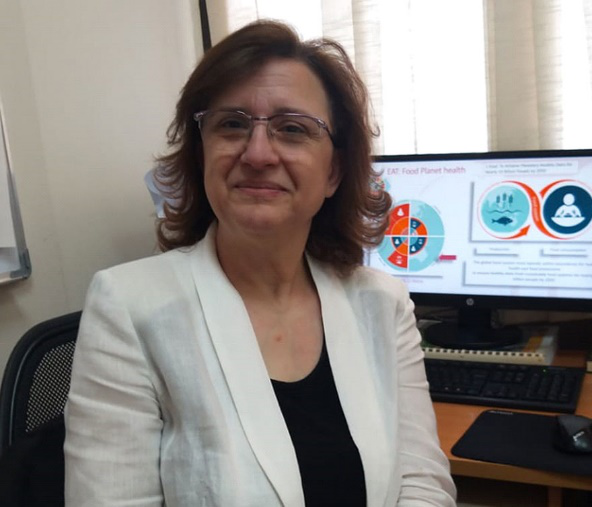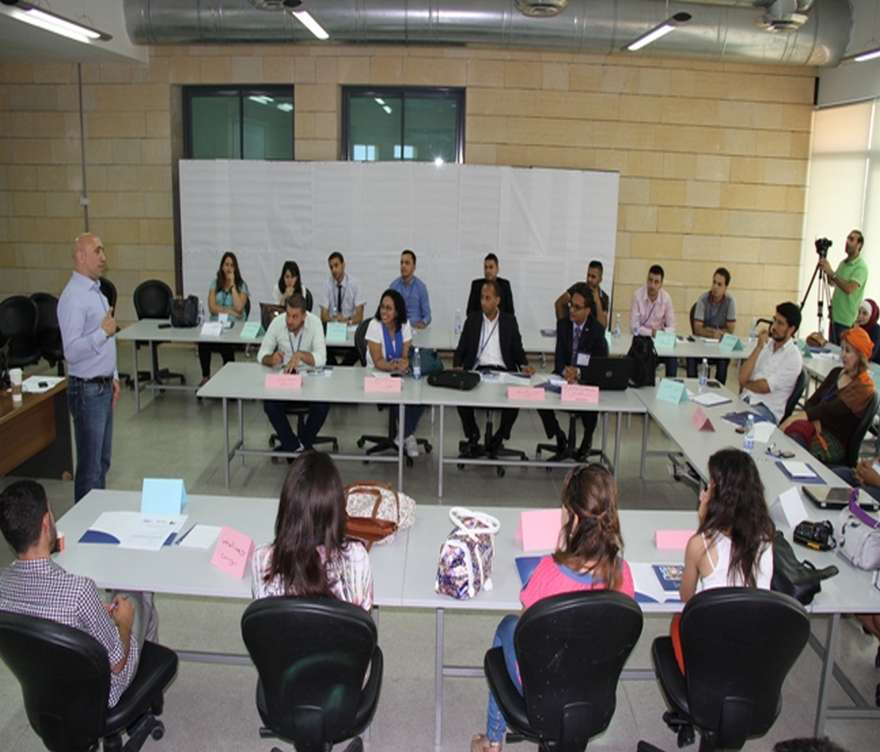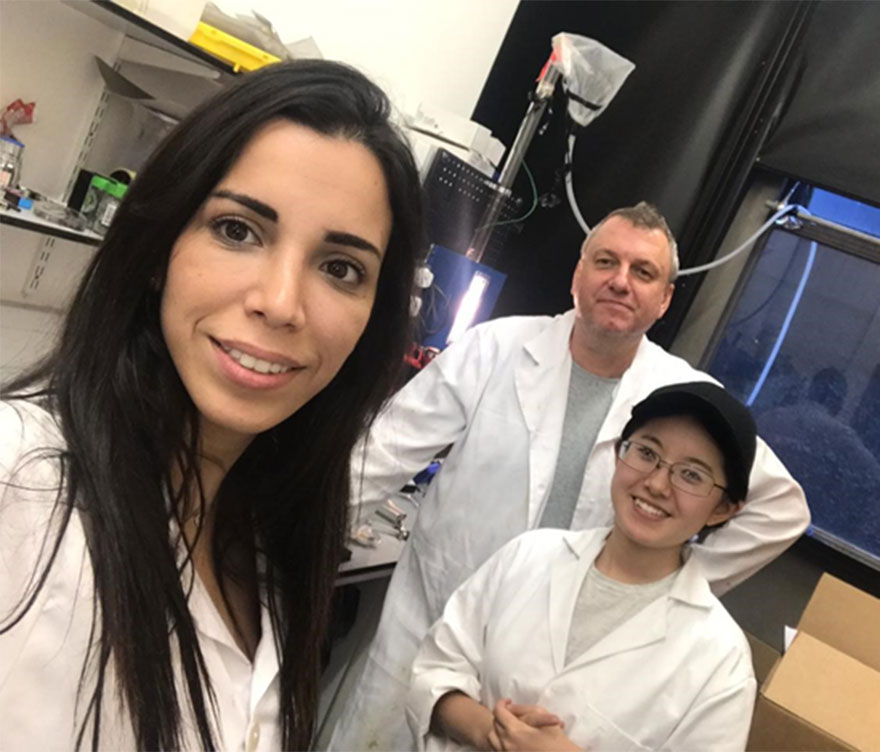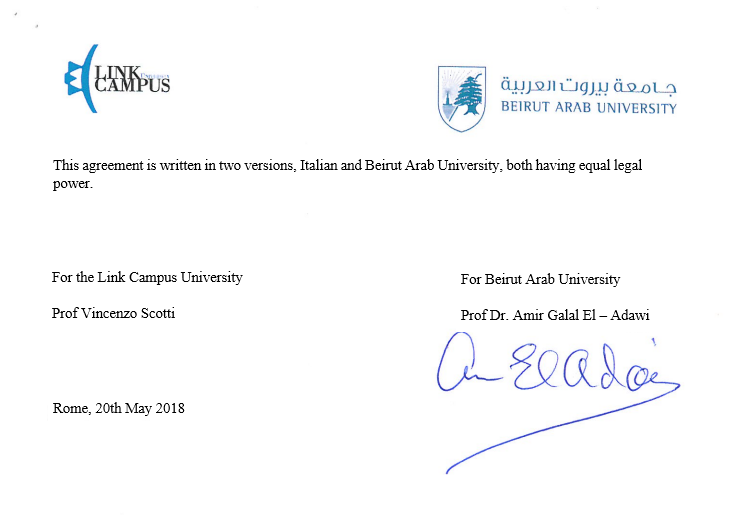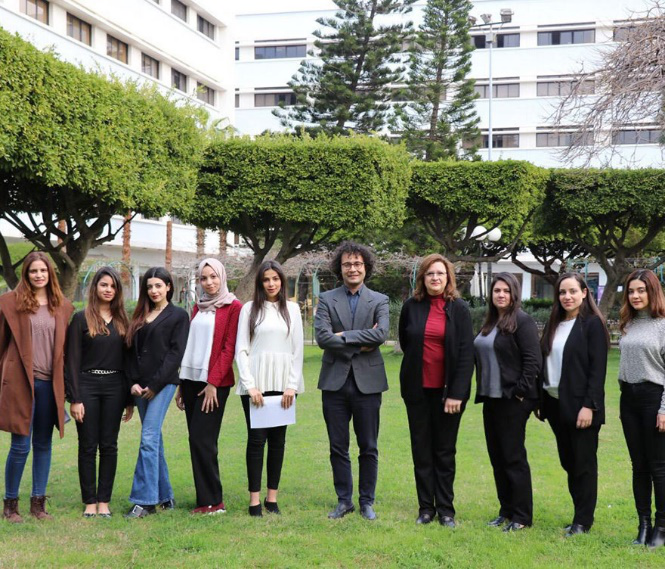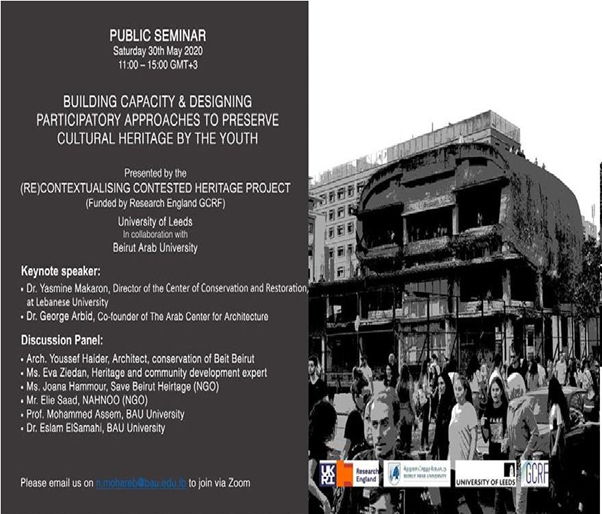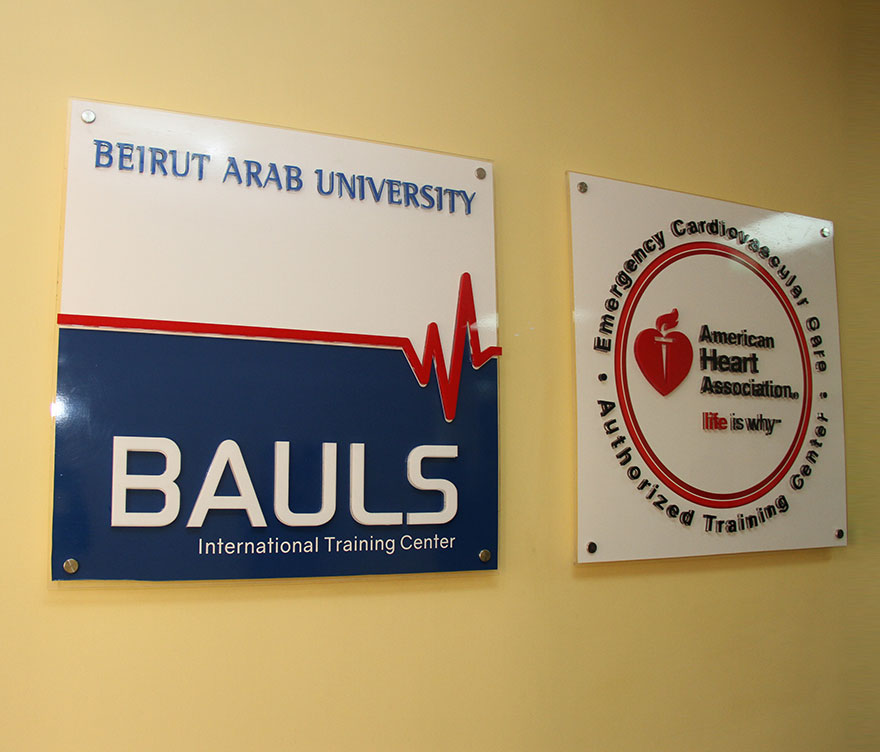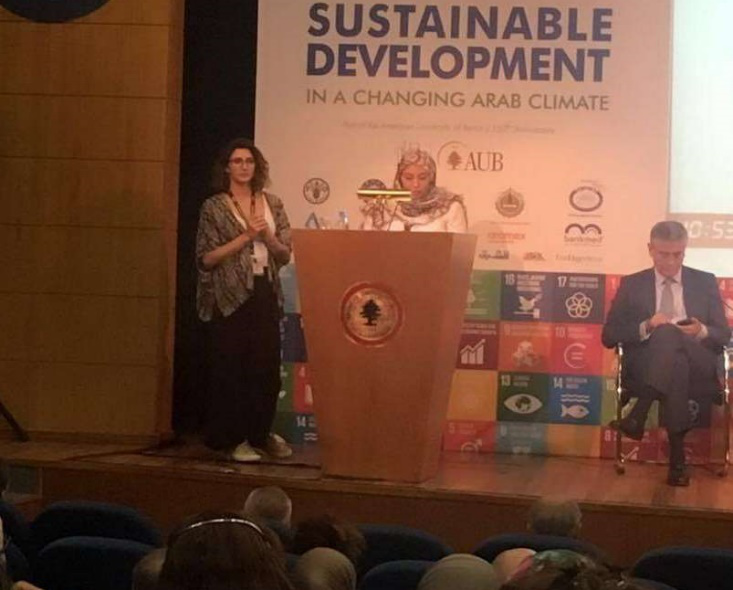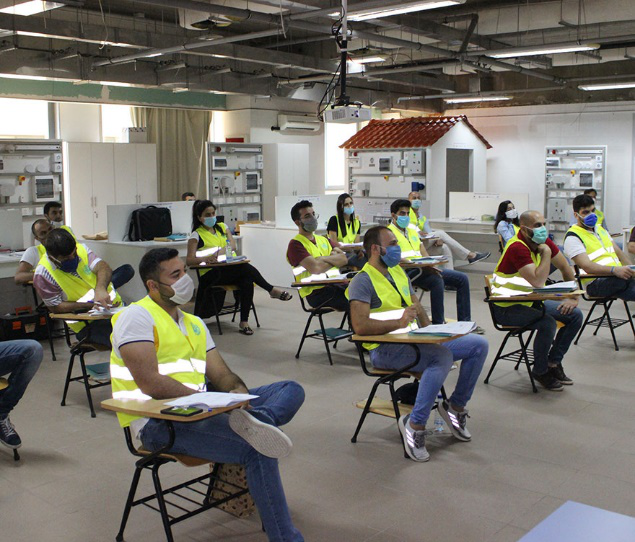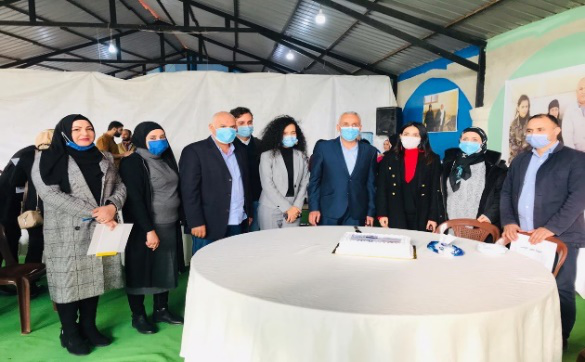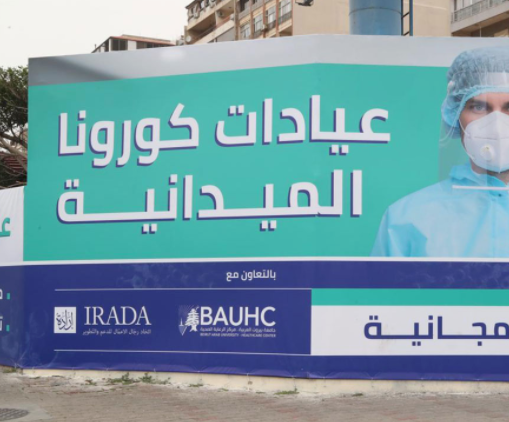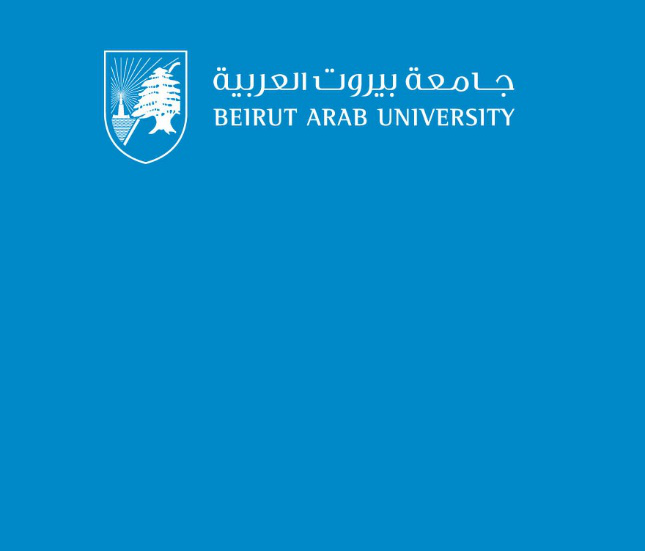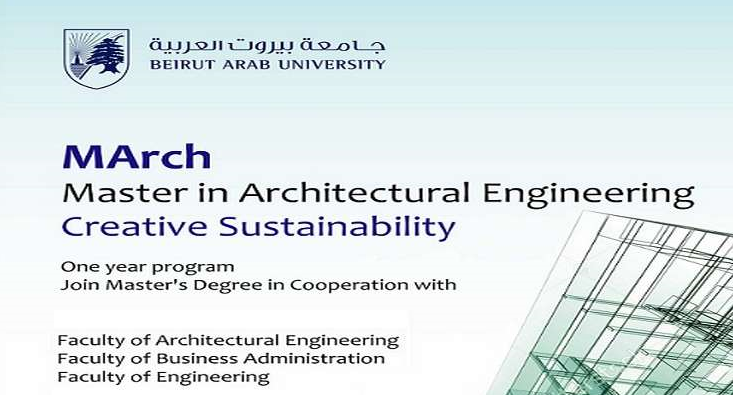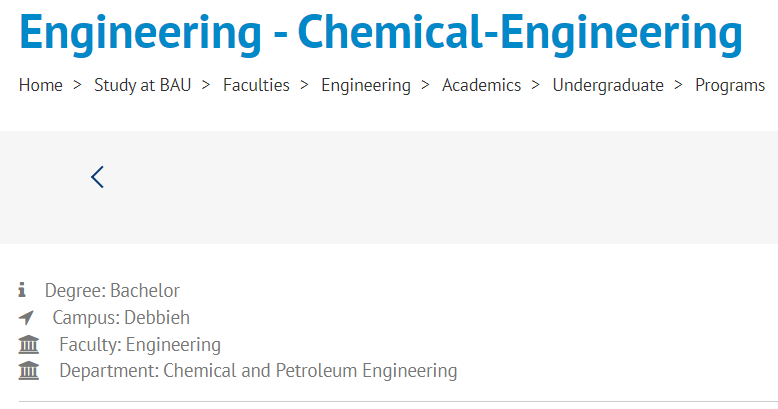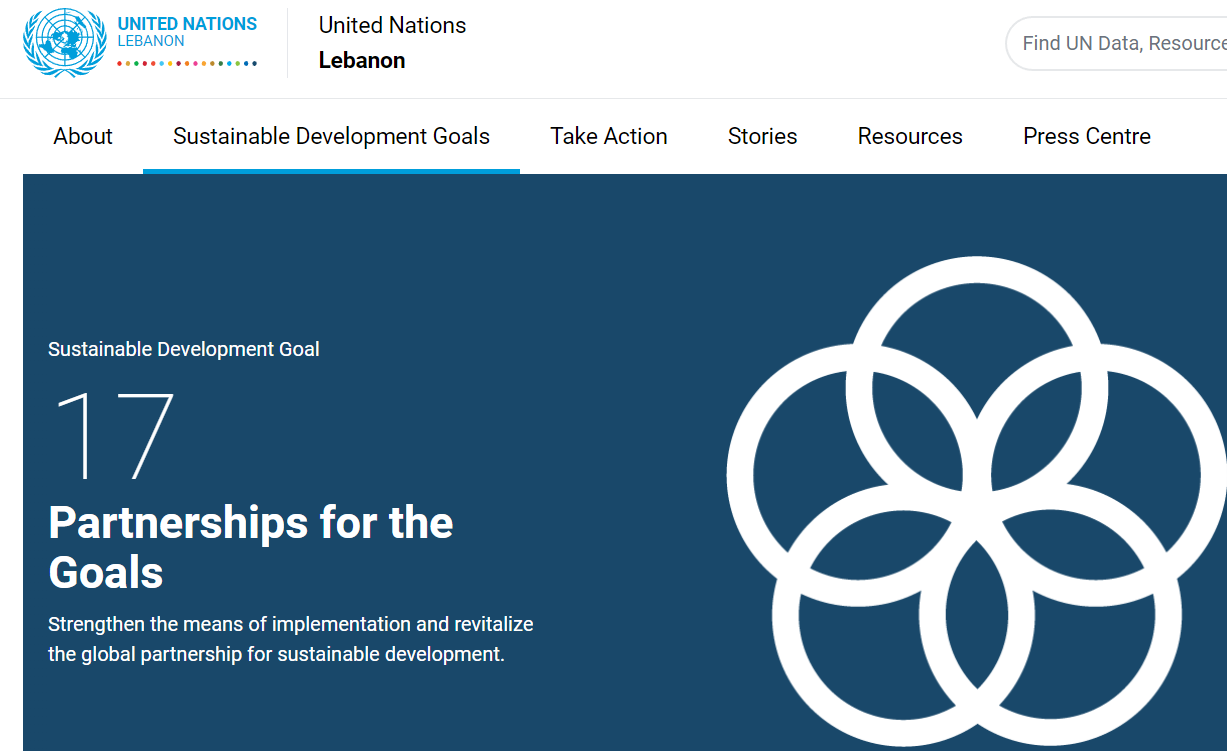SDG 17: Partnerships for the Goals
Introduction
SDG 17 refers to the need for cross sector and cross-country collaboration in pursuit of all the goals by the year 2030. It is a call for countries to align policies. SDG 17 is a vision for improved and more equitable trade, as well as coordinated investment initiatives to promote sustainable development across borders. It is about strengthening and streamlining cooperation between nation-states, both developed and developing, using the SDGs as a shared framework and a shared vision for defining that collaborative way forward. It seeks to promote international trade, and help developing countries increase their exports to ensure a universal rules-based and equitable trading system that is fair, open and beneficial to all.
Lebanon assist developing countries in attaining long-term debt sustainability through coordinated policies aimed at fostering debt financing, debt relief and debt restructuring, as appropriate, and address the external debt of highly indebted poor countries to reduce debt distress, strengthen domestic resource mobilization, including through international support to developing countries, to improve domestic capacity for tax and other revenue collection and promote the development, transfer, dissemination and diffusion of environmentally sound technologies to developing countries on favorable terms, including on concessional and preferential terms, as mutually agreed.
Beirut Arab University is committed to partnership work across its research, teaching and community engagement work locally, nationally and internationally. These partnerships are developed through Memorandums of Understanding, shared curricula, joint research projects and community engagement collaborations. BAU engages in these partnerships at a local level (local third sector, government and business), nationally (informing government policy and evaluating programmes), and internationally (partnerships with HEIs and NGOs globally, particularly in Europe, Asia and Africa); supporting partners with their research, teaching and knowledge exchange needs, as well as in social impact measurement relevant to the SDGs.
University Relevant Events
Prof. Dr. Ibtihal Youssef El-Bastawissi represented Beirut Arab University at “the regional meeting on the role of Arab universities in achieving the Sustainable Development Goals” workshop, which was held under the patronage of Minister of Higher Education and Scientific Research in the Arab Republic of Egypt, Dr. Khalid Abdul Ghaffar.
The workshop was attended by a large number of Arab universities from Egypt, Mauritania, Sudan, Oman, Yemen, Syria, Iraq, Lebanon, Jordan and Palestine, as well as representatives of UNESCO regional offices in Egypt and Beirut. Prof. Ibtihal El-Bastawissi presented the projects and activities carried out by Beirut Arab University in supporting the 17 sustainable development goals SDGs set by the United Nations focusing on Goal 9 since BAU was selected last year to represent and lead SDG 9 (industry, innovation and infrastructure) in the International Association of Universities (IAU) HESD (Higher Education and Research for Sustainable Development) Cluster.
Prof. El-Bastawissi also stressed within its presentation on how BAU community based projects, initiatives and research activities have been mapped to Goal 9 targets including supporting Sustainable and resilient infrastructure, promoting inclusive industrialization and enhancing scientific research.
The Dean ended up by highlighting on the new initiatives undertaken by Beirut Arab University to achieve the sustainable development goals as proposed in its strategy.
Beirut Arab University represented by its President Professor Amr Galal El Adawi has signed two agreements of cooperation with The Delegation of International Committee of the Red Cross in Lebanon (ICRC) and The United Nations Industrial Development Organization (UNIDO).
The agreement with The Delegation of International Committee of the Red Cross in Lebanon whose duration is one-year renewable states the university’s interest to train students of the Faculty of Health Sciences – specialized in nursing (Tripoli Branch) where ICRC shall provide all the facilities needed to assist the University in achieving its mission in nursing within the Weapon Traumatology Training Center it operates in Dar Al Chifae and Dar Al Zahraa Hospitals.
The ICRC shall provide training to students about the theoretical information they acquired at the University such as applying the basic nursing care such as measuring the pulse, pressure, temperature as well as drawing blood and inserting IV lines.
As such, the agreement of cooperation with The United Nations Industrial Development Organization in the context of the project “Market-Based Construction Skills Training for All” funded by the Government of Japan and implemented in partnership with the Ministry of Industry in the Lebanese Republic states to establish a vocational training center at BAU – Tripoli campus.
The duration of the project is renewable and ends by March 31st, 2020 inclusive. The agreement states doing vocational training in the fields of electricity and renewable energy where UNIDO develops awareness strategy to choose trainers and trainees for the Vocational Training Center; on the other hand, the University shall recruit trainers among its network of faculty and students and shall promote the center among its channels in the community.
Under the theme “A Defender for a Right”, the Office of the United Nations High Commissioner for Human Rights (OHCHR), in collaboration with the United Nations Information Centre in Beirut (UNIC Beirut) and Beirut Arab University (BAU), organized a special ceremony to commemorate the 70th anniversary of the Universal Declaration of Human Rights (UDHR) and celebrate Human Rights Day.
The ceremony, which was held at BAU Premises, was attended by Bassam Al-Halabi, representative of Minister of State for Human Rights Affairs Ayman Choucair, MP and Head of the Parliamentary Committee for Human Rights Michel Moussa, MP and representative of Prime Minister-designate Saad Hariri Roula Tabesh, Regional Representative of OHCHR Regional Office for the Middle East and North Africa (ROMENA) Roueida El-Hage, Director of the UN Information Centre in Beirut Margo El-Helou, President of the Lebanese Constitutional Council Issam Sleiman, President of Beirut Arab University Amr Galal El-Adawi and BAU Secretary General Omar Houri.
The ceremony was also attended by representatives of military and security leaders, BAU professors and students, representatives of media outlets and organizations specialized in human rights issues. El-Adawi in his statement said that “intolerance, xenophobia and incitement to racial and religious hatred all endanger the very essence of human rights.”
He also noted that “BAU is one of the first universities in the Arab region that introduced the human rights course as a compulsory requirement for all university students and this shows its unwavering commitment to human rights principles. It also established a Human Rights Center in 2009, whereby volunteers participate in awareness raising activities aiming at combating extremism through social media networks.”
El-Adawi concluded his statement by saying that BAU is committed to the achievement of the 2030 Agenda and its related 17 Sustainable Development Goals (SDGs) as member of the Global Compact Network in Lebanon. “BAU is constantly seeking to achieve social justice and sustainable development in the country,” he pledged.
An Agreement of Cooperation between Beirut Arab University the Union of Arab Banks and was signed by the President of Beirut Arab University Prof. Amr Galal El Adawi and the Secretary General of the Union of Arab Banks Mr. Wissam Fattouh at Issam Houri Hall at Beirut Arab University- Beirut Campus. The agreement stipulates the establishment of a Master’s Diploma specializing in Combatting Money Laundering and Funding Terrorism which is the first program of its kind to be taught in Arabic.
The signing ceremony was attended by Prof. Nehale Mustafa, the Dean of the Faculty of Business Administration at Beirut Arab University, as well as a number of Academic Staff at the University and a delegation from the Union of Arab Banks.
The ceremony opened with a speech delivered by Mr. Wissam Fattouh, Secretary General of the Union of Arab Banks. He highlighted the importance of the agreement, in terms of disseminating the culture of combating money laundering and funding terrorism. He maintained that the current aggravation of extremism and terrorism, endangering the remains of stability both socially and economically, necessitated a practical initiative aiming at providing the banking sector with professional graduates, specializing in combating money laundering and funding terrorism.
Realizing the importance of this initiative in the Arab Region, the Union of Arab Banks, in cooperation with Beirut Arab University, launches a Master’s Diploma specializing in combatting money laundering and funding terrorism. It is the first program of its kind to be taught in Arabic in accordance with international standards.
The program aims to provide graduates of the Faculty of Business Administration, Economics, Financial and Banking Sciences of its various branches and specializations, and graduate new recruits in the Arab banking sector, and employees whose responsibilities overlap with the contents of the program.
They will be provided with the necessary information in accordance with the regional and international legal and legislative requirements.
Mr. Freij Sabonjian, the Minister of Industry, and Professor Amr Galal El Adawi, President of Beirut Arab University, together with Mr. Nehmé Afram Head of the Association of the Lebanese Industrialists and Dr. Hasan Al Sharif, representing the National Council for Scientific Research, signed an Agreement of Cooperation between the Lebanese Industrial Research Achievements Program and BAU.
The agreement aims at procuring a framework within which both parties can carry out common activities such as:
Establish industrial and graduate research projects between BAU and the industry sector.
Conduct a feasibility study when necessary.
Exchange information and experience.
Provide the necessary funding for the common activities, conferences and seminars.
Seek other concerned parties especially the industrial institutions and international organizations.
Encourage factories to welcome students in their labs and to provide them with the necessary scientific experience and production technology.
Seek harmony between the engineering, science and technology programs and the industry and the job market needs.
Contribute in all of the activities which revenues will be used to equip the university labs with the necessary tools to conduct applied research.
The Head of Al Mina Municipality Mr. Abdulkader Alameddine and President of Beirut Arab University Professor Amr Galal El Adawi signed an agreement of mutual cooperation to support the scientific activities in AL Mina Municipality- Tripoli and to benefit from the logistic capacities, the data charts available at the municipality and the scientific experiences at BAU.
A meeting for this purpose was held in BAU- Tripoli Campus in the presence of the Head of the Municipality Council and members, BAU President Professor El Adawi, BAU Vice President for Tripoli Branch Affairs, Professor Khaled Baghdadi, BAU Secretary General Dr. Omar Houri, Deputy Secretary General for BAU- Tripoli Branch, Mr. Mohammad Hammoud, as well as Tripoli Branch Coordinator and Head of the Alumni in Tripoli Mr. Ahmad Sankari.
During the meeting, BAU president noted the “importance of cooperation with Al Mina Municipality” saying “we have become a part of it as the campus falls in its geographic realm, and thus we have to employ all of our potentials to help the municipality achieve a lot of projects. Being dear to our hearts, Al Mina requires our absolute support and contribution in its development at all levels especially that it has a unique corniche in Lebanon.”
The Human Rights Center (HRC) at Beirut Arab University organized its Seventh Exhibition of NGOs at Beirut campus under the title of "United Nations Sustainable Development Goals for the 2030 Agenda and Environment Preservation" in the presence of Minister of Environment Fadi Jreissati represented by Mrs. Anna Shaderfian.
HRC Specialist Ms. Salam Zahran opened the exhibition, stressing the fact that "this exhibition is an opportunity to introduce students to human rights issues with the participation of 47 associations and organizations concerned with all that aims to give the individuals their rights to contribute to the development of society at all levels." BAU Secretary General and HRC Director Dr. Omar Houri stated that “this exhibition in its seventh edition has become an annual tradition for our students to meet with civil society organizations, the unknown soldiers in our country, keep abreast of their progress, discuss social affairs and harness these efforts to serve sustainable development."
In his speech, BAU President and Chairman of the HRC Board of Directors Prof. Amr Galal El-Adawi indicated that, since its establishment in 2009, the Center has played a major role at the university, Lebanese and regional levels through its relationship with local and international organizations. BAU has also committed itself to achieving the 17 UN objectives both at the levels of research and education at the various faculties. BAU also seeks to achieve sustainable development through the application of the concept of community service which is a key component of its current strategy.
El-Adawi, also, thanked the participating associations and organizations for their participation in this exposition.
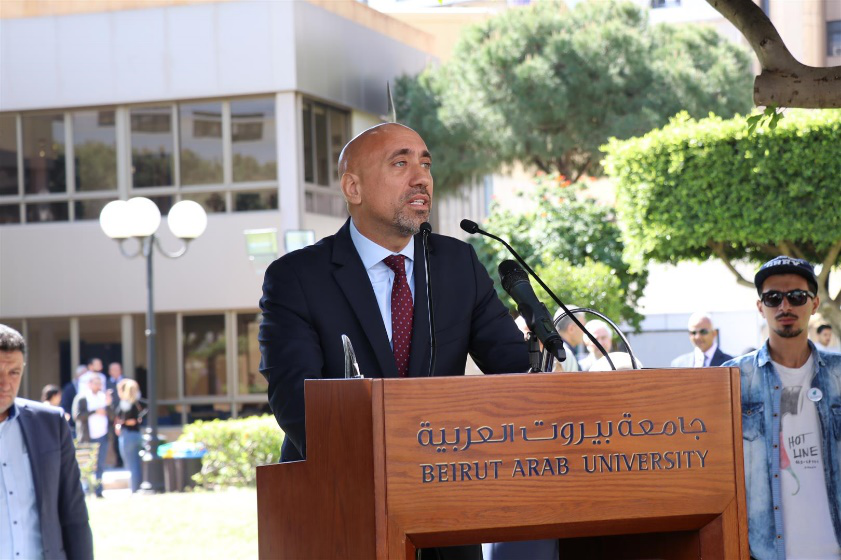
Beirut Arab University (BAU), represented by its president Prof. Amr Galal El-Adawi, signed a collaboration agreement with the National Council for Scientific Research (CNRS) represented by the Secretary General of the Council, Dr. Moeen Hamza in BAU’s Beirut campus in the presence of the Dean of Graduate Studies and Research, Prof. Hania Nakkash.
The collaboration aims at providing funding opportunities for BAU researchers where the University will provide financial support to the research projects equivalent to the amount provided by the Council, thus doubling the total amount of financial assistance allocated to accepted research projects.
This agreement is in the context of BAU’s effort to endorse research activity by allowing more funding options for BAU researchers and also allowing for the alignment of the CNRS research priorities with BAU research themes.
The Seminar aimed to introduce BAU students to the NGO’s field with an internationally accredited humanitarian charity, qualified as a “top-rated hunger organization”and to explore cooperation potential. The seminar targeted Science and Engineering students along with Faculty members and staff. It started with a welcoming note from Dr. Ghada Khawaja, Assistant Dean of the Faculty of Science, introducing AAH organization, highlighting its important support to displaced Syrians, and hosting Lebanese vulnerable communities in Bekaa and South of Lebanon.
Ms. Beatriz Navarro, the Country Director of AAH, gave a quick briefing on the establishment of AAH and its worldwide programs aiming at eradicating poverty and hunger and highlighted AAH Lebanon mission’s strategy. Afterwards, members of AAH team; Mrs. Justine Cherrier, the coordinator of Livelihood & food security projects, Mr. Edgar Barata, the coordinator of WASH projects, Mrs. Elise Jabagi, the deputy manager of WASH program, presented several talks explaining the nutrition and livelihood, WASH and solid waste management projects of AAH in the country.
Mrs. Khouloud Mahdi, the manager of WASH program, shared as well, her experience as a biochemist working in the sector. In the discussion panel, the attendees simplified how students with scientific background could join the NGO’s working in WASH program, particularly, in solid waste management and the possibility of an internship in this field and job opportunities.
Beirut Arab University, represented by Prof. Ibtihal Y. El-Bastawissi (Dean, Faculty of Architecture – Design & Built Environment) and Siam University, represented by Prof. Pornchai Mongkhonvanit (President of Siam University) have been invited by the IAU (International Association of Universities) to share their experience in engaging with the Cluster and sustainability in the Networking Session in the York Virtual Conference on Sustainable and Inclusive Internationalization.
The conference was organized by York University – Canada, in partnership with the IAU, Okayama University – Japan, and Canadian Commission for Unesco.
The conference took place on 20-22 January 2021, while the Networking Session that has been hosted by the IAU was on 21 January 2021. In her presentation, Prof. El-Bastawissi focused on achieving the SDG goals generally and SDG9 particularly through education, research, conferences, new labs, innovation and community-based projects as well as wide-spreading BAU Journals, and developing partnerships with other universities.
Following this successful intervention in the conference, IAU represented by Hilligje van't Land, the Secretary General, welcomed BAU and Siam Universities to share concrete examples of community engagement focusing on social impact to be presented by IAU during the University World News Webinar entitled “Building Social Impact and Civic Engagement on 27 January 2021.
Prof. El-Bastawissi shared with the IAU seven examples on BAU Community Engagement and on the university’s role in promoting sustainable urban development.
The International Association of Universities IAU has launched a Global Cluster on Higher Education and Research for Sustainable Development (HSED) to advocate for the Key Role that higher education institutions play in achieving agenda 2030. The global endeavour directly engages universities in addressing all 17 sustainable development goals SDGs.
Beirut Arab University was selected to represent and lead SDG 9 Industry, innovation and infrastructure that aims mainly to promote inclusive and sustainable industrialization, enhance scientific research, and support economic development and human well-being, with a focus on affordable and equitable access for all.
The Dean of the Faculty of Architecture, Design & Built Environment Professor Ibtihal El- Bastawissi is the BAU Institutional Coordinator at the IAU Global Higher Education Cluster. The IAU HESD Cluster consists of 16 lead universities, one for each SDG; IAU leads the work on SDG 17 on global partnerships. The lead universities, which are based in all world regions, will work with ‘satellite’ universities to advance a particular SDG, all the while ensuring synergies among all goals.
BAU has collaborated with IAAF to empower a team of students each year. While BAU offer them coaching and support, IAAF awards the winning team a $10,000 in cash to start their project.
The International Association of Universities IAU has launched a Global Cluster on Higher Education and Research for Sustainable Development (HSED) to advocate for the Key Role that higher education institutions play in achieving agenda 2030. The global endeavour directly engages universities in addressing all 17 sustainable development goals SDGs.
Beirut Arab University was selected to represent and lead SDG 9 Industry, innovation and infrastructure that aims mainly to promote inclusive and sustainable industrialization, enhance scientific research, and support economic development and human well-being, with a focus on affordable and equitable access for all.
The Dean of the Faculty of Architecture, Design & Built Environment Professor Ibtihal El- Bastawissi is the BAU Institutional Coordinator at the IAU Global Higher Education Cluster. The IAU HESD Cluster consists of 16 lead universities, one for each SDG; IAU leads the work on SDG 17 on global partnerships.
The lead universities, which are based in all world regions, will work with ‘satellite’ universities to advance a particular SDG, all the while ensuring synergies among all goals.
The fourth edition of the Times Higher Education (THE) Impact Ranking in 2022 was issued. This year’s assessment included 1406 Universities from 106 countries/ regions.
This is the first year Beirut Arab University participates in the THE Impact Ranking which assesses Universities against the United Nations’ Sustainable Development Goals (SDGs). BAU ranked third in Lebanon, a total of six Universities in Lebanon made it to the THE Impact Rankings list this year. BAU’s top scoring SDGs were SDG 4 “Quality Education”, SDG 3 “Good Health and Wellbeing”, SDG 5 “Gender Equality” and SDG 17 “Partnership for the Goals”, with BAU having the highest score in Lebanon on Quality Education with a score of 73.3 and ranking 100th worldwide.
BAU also held the second highest score in Lebanon on both SDG 3 & SDG 5. BAU embraces the United Nations’ Sustainable Development Goals (SDGs) within its strategy and had also aligned its research themes with these SDGs to guide BAU’s research production and enhance BAU’s visibility, collaboration, opportunities and partnerships.
BAU is hence proud to be a top scorer on quality education as it is our aim to provide inclusive quality education and empower our community with education, knowledge, and lifelong learning opportunities. This is just the beginning!.
The Faculty of Health Sciences at Beirut Arab University presented by Dr. Leila Itani, Assistant Professor at the Nutrition & Dietetics Department delivered a lecture on the 8th of April 2022 entitled "Sustainable Healthy Dietary Patterns". This participation was part of 8 modules offered through the educational activities of the series of SDGs Courses organized by the university of Pavia /Italy for Spring 2021-2022.
The course aimed to provide knowledge on nutrition, lifestyle, and wellbeing, emphasizing a sustainable diet. In this respect, Dr. Itani presented in her talk the role of the food system and unhealthy dietary patterns in disrupting the resilience of the earth’s biophysical limits and transgressing their safe operating space contributing to climate change and loss of ecological resources.
Through the lecture, the definition and composition of the recently proposed healthy sustainable diet and evidence on its role in maintaining food system activities within the safe operating space of biophysical planetary boundaries was presented. This diet is said to contribute to two global agendas for the food system namely the twelfth SDG by ensuring “responsible consumption” and “Paris agreement” to reduce climate change while ensuring a lower diet cost.
Ultimately projection on the planetary healthy diet is shown to conserve people’s health and averting death and sustaining ecological resources, eventually ensuring achievement of the three dimensions of sustainable development: social, economic and environmental dimensions.
For the fourth consecutive year, the Human Rights Center at BAU concludes the “Fourth Regional Summer Session” on the “Implementation of the Human Rights Agreements in National Systems”, in collaboration with the Arab Academic Network for Human Rights, and the Raoul Wallenberg Institute for Human Rights and International Humanitarian Law.
The event which was hosted 34 students from eight Arab countries, namely Lebanon, Jordan, Palestine, Egypt, Iraq, Algeria, Morocco and Tunisia.
The course ran for 10 days, during which staff members at BAU, the Jordanian University and the University of Algeria, in addition to a group of experts in the field, such as Jordanian ex-Minister of Justice, Dr. Ibrahim Al Jazi, and Judges Yehia Ghabboura and Khaled Akkari, presented lectures. Various topics were dealt with, most important of which is the current state of human rights in the Arab World, the status of International Agreements in National Systems, Women’s Rights, Children’s Rights, Enforced Disappearances, and the Rights of Migrant Workers.
Research & development is in action for defining the optimal conditions and technologies to decontaminate Lebanese zaatar mixtures through a partnership with the University of Glasgow and Beirut Arab University.
Dr. Ian WATSON and Dr. Nada EL DARRA conducted research on the optimal conditions and technologies to decontaminate Spices under the project “Strengthening Job Creation and Creativity in the Agri-food sector in Lebanon through technology transfer and skills training” funded by Italy and implemented by UNIDO in partnership with the Ministry of Industry and in collaboration with the Ministry of Agriculture in Lebanon.
Zaatar (Origanum Syriacum) is a traditional edible plant with high demand within Lebanon and in the surrounding Middle Eastern countries. In the age of global trade and high safety measures; decontamination is a critical process to ensure safe Zaatar consumption by reducing the load of microorganisms.
Once optimized, the decontamination of Zaatar products will facilitate export market access and international trade for Lebanese zaatar producers.
Agreement and cooperation between BAU and Link University Campus of Italy to exchange resources, human experiences and scientific research for Health and Well-being.
The Faculty of Health Sciences - Department of Nutrition & Dietetics at Beirut Arab University collaborated in the international research project that was held in partnership with University of Oxford (UK) and Gunma Paz University (Japan).
This project resulted in publishing a journal paper entitled “Association between Sarcopenic Obesity (SO) and Metabolic Syndrome (Mets) in Adults: A Systematic Review and Meta-Analysis” at the Current Cardiology Reviews (Q2 peer-review journal).
The research aimed to assess the prevalence of Mets among individuals with Sarcopenic Obesity (SO), and to determine if the latter may increase the relative risk of the former. The major finding of the study was that no higher prevalence of Metabolic Syndrome (Mets) among individuals with Sarcopenic Obesity (SO) when compared to those with obesity only, nor a significant association between Sarcopenic Obesity (SO) and a higher risk of Metabolic Syndrome (Mets) was found.
Faculty of Architecture- Design and Built Environment, Beirut Arab University (BAU) in its second collaboration with University of Leeds (UK) are inviting you to the online public seminar ‘Building Capacity & Designing Participatory Approaches to Preserve Cultural Heritage by the Youth’ as a part of the funded project with the title ‘(Re)contextualizing contested heritage project’, #ReConHeritage, funded by Research England GCRF.
The President of Beirut Arab University Professor Amr Galal El Adawi signed a three years renewal agreement between Beirut Arab University Life Support (BAULS) with the Vice President International of the American Heart Association Mr. Michael Hulley. The agreement aims to train students according to the guidelines of the International Training Center, in addition to teaching the courses in Lebanon and provide training sites, trainers (Professors), students and the necessary material as per the request of American Heart Association to offer the following courses:
• Basic Life Support.
• Advanced Life Cardiac Support.
• Pediatric Advanced Life Support.
The faculty’s accreditation matched the highest international standards of training programs for the individuals who work in the health field, such as doctors and nurses; in accordance with the medical and legal procedures required by the Lebanese Orders, Syndicates and Hospitals. This agreement contributes to SDG4 and SDG3.
The students from the Faculties of Engineering, Pharmacy, Law and Political Science, and Science at Beirut Arab University attended the 9th Annual AFED Conference of the title of “Sustainable Development in a Changing Arab Climate”.
The conference was attended by influential people from around the world to discuss the upcoming Sustainable Development Goals. The university students, named Future Environmental Leaders Forum, participated in multiple sessions, presented by AFED authors and international figures, on how to face the current challenges standing in the way of SDG.
The 2-day conference ended with the students writing and presenting their own statements on how to achieve these goals despite all the obstacles in the Arab World.
The United Nations Industrial Development Organization (UNIDO), with generous contribution of the Government of Japan collaborated with Beirut Arab University (BAU) and The Ministry of Industry in Lebanon to establish two new vocational training centers for Electricity and Solar energy at the BAU – Tripoli campus.
The project aims to create economic opportunities and jobs in the construction sector for members of the host and refugee communities –especially vulnerable women and youth –since investment in skills development and innovation are crucial drivers of economic growth and development.
The project focuses on delivering training skills aligned with market needs and on serving the local communities in the North of Lebanon, especially vulnerable youth & women whose enrollment in the training is encouraged as part of this project.
Beneficiaries will learn new skills and acquire on the latest technologies and practices in the market in order to increase their chances of finding a job and achieve inclusive education. This event contributes to SDG1 No poverty and SDG4 Quality Education in the community.
For the occasion of the International Day for the Elimination of Violence against women, the Human Rights Center at Beirut Arab University in collaboration with the Lebanese National Commission for UNESCO (LNCU) and Internal Security Forces ISF organized a workshop on Friday 4th of December 2020 at the village of Khrab El Hayatt- Akkar within the framework of 16 days to raise awareness globally on the elimination of violence against women.
The workshop, was represented by Dr. Tala Zein from the Lebanese National commission for UNESCO, Ms. Salam Zahran from the Human Rights Center at Beirut Arab University, and Major Youssef El Dekweir from the Internal security forces.
It targeted 25 participants mainly females and females for the local community, aimed at increasing public awareness on violence against women; building capacity and understanding main definitions and concepts in the framework of Women’s Rights; engaging youth in promoting women’s rights and contribution to fight discrimination within their society.
In addition, participants were trained on entrepreneur skills in developing projects and business. This event contributes to SDG5 Gender Equality in the community.
BAU wants to promote a healthy lifestyle and considers that cooperation between institutions is essential in this time of pandemic, health public has been affected by the great demand of people attacked by the covid19.”
The health and social situation of the human being in Lebanon has become threatening, especially since hospitals have reached their maximum capacity, and that field clinics shall contribute in facing the virus, which will provide its services freely for everybody through a medical and nursing team from BAU under the supervision of the BAU Health Care Center of the Faculty of Medicine”.
For this reason, in collaboration with IRADA, launched free clinics for corona patients. “The clinics will provide free medical examination and follow-up to patients who do not need hospitalization and can be treated at home by a group of specialist doctors and nurses in field clinics specially established near the intersection of Sports City and Tarik Al Jadidah.
They consist of seven clinics fully equipped with their facilities, and a ready ambulance for the Islamic Medical Association to transfer critical cases to Makassed Hospital and Rafik Hariri Hospital”. This event contributes to SDG3 Health and Well-being in the community.
University/Strategy/Policy/Procedure
The Faculty of Science has received, on October 24th, 2019 the approval of the “Base-building projects for training in the South” of the Institute of Research for Development (IRD), France to co-fund the project “International Post Graduate Studies in Environmental Management and Sustainability for Mediterranean Countries)” (ENVIPRO-Med).
This project is designed to develop a Joint Postgraduate Master’s program between the Faculty of Science, Department of Biological Sciences at BAU and the Master “Ingénierie en Écologie et Gestion de la Biodiversité” (IEGB) of Montpellier University, France with partnership of the Environmental Observatory O-Life, Ministry of Environment of Lebanon, the Research Center for Environment and Development at BAU and ECO-MED, France.
It aims at improving environmental education and capacities of Lebanon and the region to address the severity and complexity of current environmental challenges. It focuses on overarching issues such as environmental sustainability, interdisciplinary aspects of ecosystem services and risk/benefit assessment with the integration of experiential learning opportunities.
The project highly emphasizes cooperation with industry and employers, local authorities and both governmental and non-governmental institutions and organizations to enhance innovation potential and employability of graduates.
It also addresses issues of transboundary concern in the Mediterranean Basin and build regional cooperation between Lebanon and France. The intended postgraduate program will be majorly new while benefiting of some existing graduate courses offered by MSc program in Environmental Science of the Faculty of Science and other courses of different departments at BAU.
It will be composed of 3 phases:
Knowledge sharing between partners and exchange of teaching and research ractices and institutionalization strategies at the IEGB of Montpellier University and Faculty of Science of BAU
Curriculum development and capacity building of Lebanese team involved delivering the intended program through a systematic multi-disciplinary approach
Launching of the program at BAU after finalizing all needed administrative and institutional approvals.
Master in Architectural Engineering – Creative Sustainability, (M.Arch.)
Master in Architectural Engineering – Creative Sustainability, (M.Arch.).
One-Year Program (28 Credit hours).
Joint master’s degree program at the Faculty of Architectural Engineering in cooperation of Faculty of Business Administration and Faculty of Engineering.
Admission Requirements
Applicants for the Master Degrees (M.Arch) must hold a Bachelor of Architectural Engineering Degree obtained from the Faculty of Architecture at Beirut Arab University or any recognized university, with a minimum CGPA of 2.33 for credit hour system students, or ‘’Good’’ for the academic year system students; or a Specialized Graduate Diploma with a minimum CGPA of 2.33 or its equivalent.
The Computer Engineering career encompasses opportunities in a wide range of areas such as industry, military, communications, aerospace, business, government, medicine, to name but a few.
Computer engineering is in steady progress with an ever-expanding job market. Specific jobs include the functions of designing, analyzing, and maintaining computer systems.
Furthermore, graduates can analyze, design, test, and evaluate network systems. In addition, they can develop, create, and modify general information security schemes.
In addition, they can develop, and test systems and application software programs. Trending areas in computer engineering comprise artificial intelligence and machine learning, cybersecurity, smart cities, autonomous driving, vehicular networks, and more.
Indeed, computer engineers enjoy high job satisfaction as reflected in market studies. In modern terms, computer engineers are digital transformation and world smartification leaders, believers in sustainable development, technology entrepreneurs and professionals with an engineering mindset.
The mission of the Computer Engineering (CE) Program is to prepare students for rewarding careers and higher education, engage in scientific research pushing the frontiers of the field even further, and get involved in local community issues requiring specialist participation.
The Computer Engineering Program is designed such that its students upon graduation will:
Possess the highest level of technical robustness in the field of computer engineering that will earn them recognition and esteem among their colleagues.
Have the knowledge and skills to invent novel technology, provide creative designs, and suggest innovative solutions to challenging problems.
Stay abreast of emerging technologies, continually learning new theory and skills to nourish ever-developing careers.
Demonstrate good citizenship, fulfilling their professional responsibilities towards their communities, Lebanon, and the World at large.
Excel on multi-disciplinary and multi-cultural teams, and effectively employ their oral and written communication skills to resolve problems.
The Electrical Power and Machines Engineering undergraduate program is accredited by the Engineering Accreditation Commission of ABET
Mission
The Department of Electrical and Computer Engineering offers a Bachelor of Engineering in Electrical Power and Machines (EPM).
The EPM program focuses on both the theoretical and practical aspects of power engineering by addressing the fundamental concepts of engineering mathematics, physical sciences, electrical machines, Power Electronic Circuits, Electrical Power System Analysis, and high voltage engineering.
The department plays a vital role in providing Lebanon and the region with qualified electrical power engineers.
The department also offers Master and Ph.D. degrees in electrical power engineering to cater for working professionals in electrical power companies, utilities, manufacturing establishments and the energy sector in Lebanon.
Objectives
The educational objectives of the program are determined to support career advancement of the graduates and as they pursue their career goals, the graduates will:
Advance in engineering careers involving the design, optimization, and implementation of electrical systems, take innovative entrepreneurial ventures, and /or successfully pursue an advanced degree.
Acquire new knowledge and adapt to emerging technologies.
Assume leadership roles in multidisciplinary teams and promote sustainable eco-solutions in contemporary issues.
Communicate effectively and demonstrate ethical and professional behavior in a multicultural work environment.
Student Outcomes
An ability to apply knowledge of mathematics, science, and engineering.
An ability to design and conduct experiments, as well as to analyze and interpret data .
An ability to design a system, component, or process to meet desired needs within realistic constraints such as economic, environmental, social, political, ethical, health and safety, manufacturability, and sustainability.
The Chemical and Petroleum Engineering Department is devoted to educating exemplary chemical engineers by instituting best learning practices that drive knowledge, build skills and competencies, and inspire the learner to define a purpose, develop a passion to forever learn, cultivate a sense of responsibility toward the profession, society, and the environment, and attain the ability to confront challenges, and in so doing contribute to the advancement of the community, immediate and beyond.
Objectives
The educational objectives of the Chemical Engineering (ChE) program are determined to support career advancement of the graduates and as they pursue their career goals. Chemical Engineering program objectives are:
Provide Students with the education and training in the field of chemical engineering through the study of chemical manufacturing or industrial processes by transforming raw materials into consuming products through the design, construction and management of factories.
Supply the student with basic Chemical Engineering knowledge necessary for industrial practices.
Meet the growing needs to face future difficulties in the Lebanese and Middle East Chemical industries.
Learning Outcomes
an ability to apply knowledge of mathematics, science, and engineering.
an ability to design and conduct experiments, as well as to analyze and interpret data.
an ability to design a system, component, or process to meet desired needs within realistic constraints such as economic, environmental, social, political, ethical, health and safety, manufacturability, and sustainability.
The below is a listing of all partnership initiatives and voluntary commitments where Lebanon is listed as a partner or lead entity in the Partnerships for SDGs online platform:
Eng. Iffat EDRISS
Objectives: -protected marine biodiverity namely sea turles nests, illegal fishing and illegal construction. -protect people's rights to free access to beaches and safe and clean water. -provide open space for sports and leisure. OBBA Public Beach Strategy is an update to The Ministry of Public Works and Transport (MOPWT) Public Beach Strategy, endorsed in 2001 to provide healthy and free coastal public space for people. The strategy aimed to improve the management of those spaces, protect marine ecosystems and protect the coastal zone in Lebanon from illegal privatization.
Partners
Ministry of Public Works and Transportation: as in charge of teh coastalzone management Ministry of Environment: as one of its objectives is to increase protected areas by 2020 Operation Big Blue Association: Marine concervation NGO Cedars for Care Association; Philantropy and social NGO aiming to improve life of teh less fortunate in Lebanon and improve public spaces services to provide well.
Mediterranean Water Knowledge Platform
The establishment of a Mediterranean Water Knowledge Platform is a prerequisite to the development of sustainable policies for integrated water resources management and climate change adaptation. It aims to provide a common basis for the development of national water information systems in four pilot countries, and to deliver an assessment of water resources management and use (i.e., drafting of a white paper) by collecting and exploiting data of these systems.
Partners
International Office for Water
Institut Méditerranéen de l'Eau
Euro-Mediterranean Water Information System (EMWIS)
Mediterranean Network of Basin Organisations
United Nations Environmental Programme Mediterranean Action Plan (UNEP-MAP)
Arab League Center for Water.
Ministry of Water and Irrigation (Jordan)
Ministry of Energy and Water (Lebanon)
Ministry of Energy.
Initiatives
More than 90% of the funding for projects within SDGs 8 and 17 was allocated to augment government budgets in Least Developed Countries (LDCs) giving flexibility to governments to allocate funds according to their plans and priorities.
Lebanon provided AED 1.7 billion (USD 460 million) to International Organizations for multilateral funding that covered social, economic and environmental programs.
Lebanon provided AED 1.8 billion (USD 490 million) to International NGOs, national NGOs and civil society institutions across 130 countries to support SDG 17 and its target 17.3.
Mobilize additional financial resources for developing countries from multiple sources’, MOFAIC setup a solutions-driven dialogue with key actors from the UAE-based private sector and development community to mobilize resources for women empowerment.
